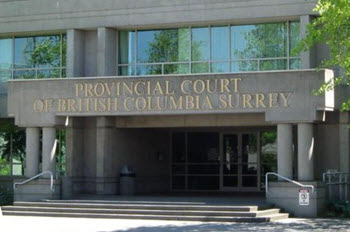Updated June 2022
A new approach to resolving family disputes in BC Provincial Court is being implemented in Surrey and Victoria on December 7, 2020. It makes trying to resolve disputes by agreement the first step in the court process, rather than just an alternative to court. It also recognizes the importance of assessing each family’s needs and helping them navigate court procedures when those are needed.

The BC Provincial Court and the Ministry of the Attorney General have been trying out key aspects of this “Early Resolution and Case Management Model” in Victoria since May 2019. Results to date are positive and implementing the initiative in Surrey will allow us to apply lessons already learned and try new ideas in BC’s busiest court.
The model builds on existing family justice services to help families focus on earlier, more collaborative, resolution of their disputes. People are referred to assessment, mediation, and parenting education earlier in the process than under existing family court rules. Even if people don’t reach agreement on all issues, these services can help them narrow their dispute so it’s easier to proceed with a hearing in court.
The early resolution model includes new, simpler forms and procedural changes that help set a collaborative tone. For example, instead of making their first appearance in a busy, adversarial courtroom, people attend a family management conference with a judge as the first step in court proceedings.

Surrey was chosen as the second Provincial Court location to use this approach because of its high number of family court cases. Experience in Victoria shows the approach can help families resolve their issues without needing to appear in court. When fewer cases are scheduled for court, there is more time available for those who need hearings and they can be scheduled sooner.
Family court procedures in Surrey and Victoria
Amended rules (see BC Reg. 525/2020) set out the procedures for two types of Provincial Court matters filed in Victoria and Surrey under the Family Law Act on and after December 7, 2020:
- "family law matters”, defined to include child support, spousal support, guardianship, contact with a child, and parenting arrangements (including parental responsibilities and parenting time)
- other Family Law Act matters, including protection orders, priority parenting matters (defined in Rule 5.01(1)) and enforcement of court orders and filed agreements
Early Resolution Requirements
In most cases, the new process requires you to take these steps before filing an application for a court order about a family law matter:
- file a Notice to Resolve and provide a copy of the notice to the other party -get forms at Early Resolution and Case Management Model forms (only in Surrey and Victoria court registries)
- meet with a family justice counsellor who will conduct an assessment and may refer you to helpful community resources
- complete a parenting education program
- if appropriate, participate in at least one mediation session
The other party or parties must also have taken these steps before they can file a reply to an application about a family law matter.
People will be able to get legal advice during this “early resolution” phase. If their issues aren’t resolved, they may file an application and proceed to court. The family justice counsellor will help the parties make sure they are ready for court (for example, by checking that they have completed and shared financial information).
Time-sensitive matters like protection orders and “priority parenting matters” follow a different process. The early resolution requirements do not apply to these applications. Instead, they will be set for hearing before a judge. However, other issues between the parties will still use the early resolution process.
Some other matters (such as enforcement, relocation, and orders the parties consent to) will use new forms but will not require early resolution assessment or mediation.
Family Management Conferences
Once an application and reply are filed, your first court appearance is at a family management conference - an informal conference with a judge. The conference judge may make:
- conduct orders to manage interaction between the parties
- case management orders to help prepare for trial
- some “interim” (temporary) orders
- if the parties agree, final orders
They can also refer the parties back to mediation, adjourn them to another conference, or have the matter set for a trial.
New rules
Order in Council No. 525/2020 changes Rule 5.01 and Appendices B and C to the Provincial Court (Family) Rules to govern the Early Resolution and Case Management Model in Surrey and Victoria. You’ll find the necessary forms in Appendix C.
The rules for Provincial Court family cases in the Early Resolution and Case Management Registries (Victoria and Surrey) also include changes to the rules on how protection orders and priority parenting matters (time sensitive decisions for children) are dealt with. The forms and process for consent orders are also changed.
However, many parts of the current rules are left untouched - including trials, trial preparation conferences, case conferences, and Family Maintenance Enforcement matters. Any section of the existing Rules not in conflict with a provision of the early resolution model still applies.
When and where the new rules apply
Starting December 7, 2020, people who want to resolve family disputes - in particular, family law matters like child support, spousal support, parenting arrangements, contact or guardianship - at the Provincial Court in either Surrey (at 14340 - 57th Avenue, Surrey) or Victoria (at 850 Burdett Avenue, Victoria) ) will use this “Early Resolution and Case Management” process.
If you have filed an application for an order, an application about an existing order or agreement, or a notice of motion, in these court registries before December 7, 2020 you will continue under the previous process.
Early Resolution and Case Management is only for family matters under the Family Law Act in Provincial Court, and only available in Victoria and Surrey at this point. It does not apply to divorce or other proceedings in the Supreme Court of BC.
More information
- infographic
- Early Resolution (BC government website)
- Evaluation shows “Early Resolution Model” helped families resolve disputes without court battles (eNews article)
Please check the date an eNews article was posted. We do our best to keep our website up to date, but older articles may not reflect current information. eNews articles provide general information only and should not be used as authority in court proceedings or as a substitute for legal advice.

